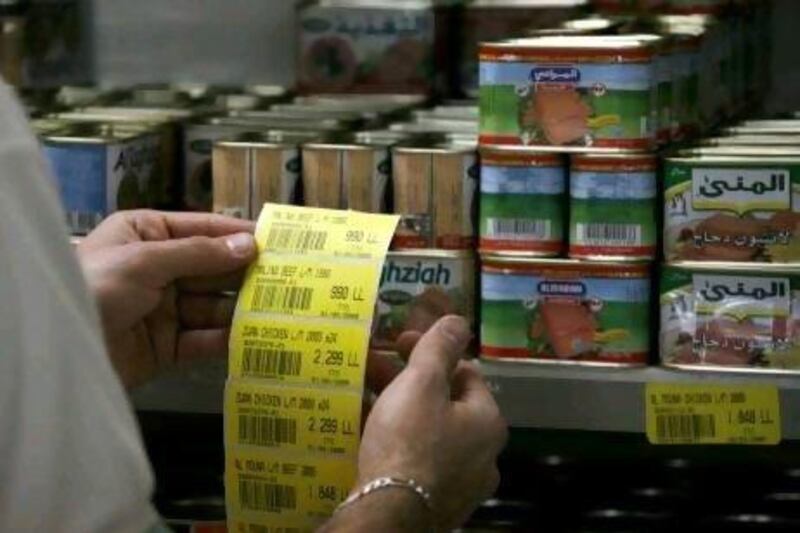In 1973, at the height of the Cold War, Middle East Airlines opened an office in East Berlin as part of a partnership with Interflug, the then East German state carrier.
I know this because my father set it up.
The deal meant nothing to me at the time. My main concern as an eight-year-old was finding a decent breakfast cereal whenever I went to stay. It's true. Eastern Bloc supermarket shelves were always empty and the only cereal one could find was a type of cornflakes sold in what would normally be the inner bag of a regular cereal box.
It was a formative experience and perhaps because of it I have always looked at supermarkets - the prices and produce, the way shelves are stacked, the food arranged and the variety of goods on offer - as a crude benchmark of a country's economy.
And sure enough, as Lebanon wilts in the summer heat and its own government incompetence, the mood at my local supermarket seems to reflect the general malaise.
During my last trip, the escalator to the lower level did not work and there were at least two buckets collecting leaks from the ceiling. Many of the shelves had not been restocked - the gaps filled-out with existing items - and the normally enthusiastic boys who pack bags at the checkout appeared to be on one long cigarette break.
"What do you expect?" asked my wife. "Not only has the best talent already left the country, the summer season is dead. There is no appetite for work, particularly in this heat and especially as for half the country it's Ramadan. And you wonder why things are falling apart!"
The power cuts have become more acute. An Irish friend who runs Beirut Duty Free and who is normally one of Lebanon's biggest fans, was reduced to griping like the rest of us last week after the new Rafik Hariri International Airport went for three days without air conditioning.
It was bad enough for bedraggled tourists waiting to have passports stamped or collect bags but his accounts team, working in a small back office, apparently came close to mutiny. "I'm telling you Michael the poor fellows were totally [sweat] drenched."
At home it isn't getting any better. We haven't paid an electricity bill in at least two months due to industrial action by Électricité du Liban's contract workers. As refreshing as that might at first seem, the strike has also affected day-to-day maintenance of Lebanon's already catastrophic national grid, the upshot of which is parts of the capital have had to endure more than the "normal" daily three-hour power cuts.
The heat clearly isn't helping. Air conditioning is on full blast across the city and this has caused power surges.
Since Monday, I have "tripped" 18 times, each outage involving a journey to the basement to reset the switch. After a while, it begins to grind at the soul.
But this is to be in the lap of luxury compared to elsewhere in the country, where it's much, much worse.
I fled with my family to the mountains last week only to find the area was getting only three hours of government electricity a day.
"That's not bad," said a neighbour, who for the previous week had to live on less than 12 hours of state power and who is unable afford a generator.
Lebanon may be able to style itself as a chic and edgy eastern Mediterranean entrepot with restaurants, bars and clubs to rival those in the West. It might have built gleaming new apartments buildings (even if they are in many cases empty) and its food might be the best in the region. But the reality is that for the past 20 years it has been a failed state, living on the back of an illusion.
At least the East Germans didn't live in the dark, not literally anyway.
Michael Karam is associate editor-in-chief of Executive, a Lebanese regional business magazine





